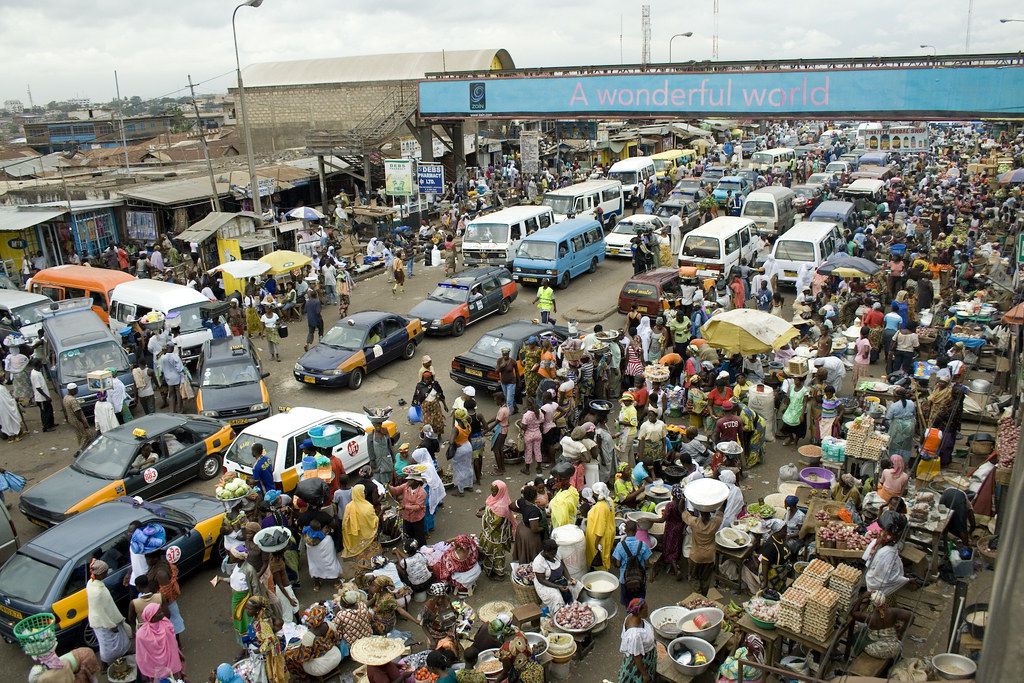Published
5 years agoon
By
Frimpong
Government with support from the World Bank and DFID has commenced an emergency data collection of the poor and vulnerable in Accra. The data collection exercise which is being carried out by the Ghana National Household Registry (GNHR), a unit under the Ministry of Gender Children and Social Protection, is to help government identify the beneficiaries of the social protection programmes being implemented in Ghana.
The essence of the 8-days data collection exercise is to improve targeting, prevent duplication of efforts and promote transparency in the process. The data collection will as well, increase transparency and accountability in provision of relief services to the poor and vulnerable.
At a Press briefing in Accra today 28th April, 2020 the National Coordinator for GNHR, Dr. Prosper Laari said upon completion of data collection, using a proxy means test, GNHR will categorize poor and non-poor households, after which social programmes can determine their own eligibility criteria for inclusion.
He said the GNHR has completed data collection exercises in the Upper West and Upper East regions which are among the poorest regions in Ghana therefore the two regions presently have comprehensive data on poor and vulnerable persons within both regions.
He added that the data can be used to identify beneficiaries for social protection interventions, and in particular, in the distribution of relief services during emergencies like the current COVID-19 pandemic.
Dr. Prosper Laari said GNHR has commenced the process to carry out its data collection exercise in the Northern, North-East and Savannah Regions, and later in Central and Volta Regions by December 2020, however, the outbreak of the COVID-19 pandemic has slowed the process of the data collection in these regions.
He said as earlier indicated by the Hon. Minister for Gender, Children and Social protection, Hon. Cynthia Mamle Morrison in a media interview, Government has data on some sections of the poor and vulnerable in the Greater Accra Region and the other lockdown areas, however, vulnerability status is very transient and there is not a comprehensive picture of all poor and vulnerable persons.
He further stated that the current pandemic has rendered a lot more people vulnerable because while it is possible that those who were vulnerable at the time the data was collected may be a bit better off or may have even moved to another location.
Dr. Prosper Laari indicated that there is therefore calls for the need for the data to be updated to reflect the present status of the target beneficiaries and an updated data will also help government to adequately and rapidly plan and budget towards the social welfare services to provide to vulnerable groups during this emergency situation, and beyond for recovery purposes.
He mentioned that World Bank and DFID is therefore supporting the Ministry of Gender, Children and Social Protection to update its data on the poor and vulnerable during this pandemic.
According to Dr. Laari as has been done since the commencement of the distribution of the relief items, the field staff will be provided with the needed Personal Protection Equipment (PPE) and briefed on a regular basis on the need to adhere to all the pandemic mitigating measures and most importantly the need to observe social distancing protocols.
He said this is to ensure that the data collected is in a safe and secured manner so as not to put both the data collectors and the respondent at risk of contracting the disease.
Dr. Prosper Laari therefore on behalf of the Minister for Gender, Children and Social Protection, Hon. Cynthia Mamle Morrison urged all to cooperate at the hotspot areas identified for this exercise.
The exercise will use a structured questionnaire in the collection of the data on poor and vulnerable persons. The field staff will reach these vulnerable persons through in-person data collection processes by approaching the targeted persons through interaction and taking demographic, socio-economic characteristics and other vital information that may be needed to provide economic and social support. This is because some of these targeted groups of persons are usually difficult to reach through phone survey because they are mostly migrants and not connected to the national grid.
The Ghana National Household Registry a unit under the Ministry of Gender Children and Social Protection with the mandate to create a National Household Registry from which potential beneficiaries of social protection interventions will be selected.
The Registry is to promote effective targeting, increase cost effectiveness and prevent duplication of efforts with the social protection system in Ghana.

























